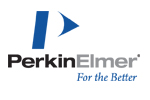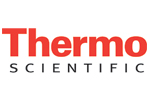Other Track AgendasAdvances in Biodetection & Biosensors | Advances in Microarray Technology | Advances in Protein Crystallography | Advances in Separation Technology | AgriGenomics Congress | Lab-on-a-Chip European Congress | Next-Gen Sequencing Europe | Screening Europe - HCS and Assays | Screening Europe - HTS & Compound Management | World Biobanking Summit |

Thursday, 30 June 201108:00 | Registration | 09:00 | Strengths and Weaknesses of Microarrays in Diagnostics
Bertrand Jordan, Founder/Coordinator, Marseille Nice Genopole, France
The common perception that microarrays are superseded by NGS doesn’t take into account many features of clinical work. Microarrays may assess many entities of clinical interest besides DNA and definitely have a future in some of these fields. | |
Session: Advances in Protein Arrays |
| | 10:00 | Unlocking Biomarker Discovery - Design of Antibody-Based Microarrays for High-Throughput Disease Proteomics
Christer Wingren, Associate Professor And Lecturer, Lund University, Sweden
Unlocking the proteome and delivering biomarkers to the clinic will be critical for early and improved diagnosis, prognosis, and classification. Our recombinant antibody-based micro- and nanoarrays designed for high-throughput disease proteomics and applications thereof will be presented. | 10:30 | Coffee and Networking in Exhibition Hall | 11:15 | Protein Microarray Technologies - Analysis of Signaling Networks in Tumours
Markus Templin, Head, University of Tuebingen, Germany
Complex data sets generated from limiting sample material allow the identification of differences in activation of signaling networks directly on the protein level. Protein microarray analysis during anti- cancer drug development will demonstrate the power of the technology. | 11:45 | A Systematic Investigation of Candidate Breast Cancer Progression-Associated Biomarkers Identified from Omic Screens: Leveraging Antibody-Based Proteomics
William Gallaghr, Chief Scientific Officer/Professor, OncoMark Limited/University College Dublin, Ireland
A key bottleneck in the translation of discoveries from transcriptomic and proteomic screens into clinically viable diagnostics relates to current deficits in relation to antibody availability. This presentation provides a case example of how antibody-based proteomics can be applied to transition candidate breast cancer progression-related biomarkers from such omic screens. | 12:15 | Lunch and Networking in Exhibiton Hall | 12:45 |  Free Workshop Free Workshop
Advancement of Separation, Purification and Crystallography from Agilent Technologies
,
| 13:15 | Poster Viewing | 13:30 |  Free Workshop Free Workshop
High Content Screening for Compounds and Genes Affecting Bacterial and Viral Infections
,
| 14:15 |  | Keynote Presentation Immunoassays in Multiplex for Biased and Unbiased Proteomic Research
Thomas Joos, Deputy Managing Director, University of Tuebingen, Germany
This presentation discusses a simple and efficient way to overcome current limitations of multiplexing sandwich immunoassays and a strategy to cover a wide range of any given proteome with a minimal set of antibodies. |
| 14:45 | Kidney & Liver Biomarker Toxicity Identification from Gene Expression Data via Incorporation of Biological Network Information
Robert Russell, Professor, University of Heidelberg, Germany
I will discuss our efforts to discover biomarkers for liver and kidney toxicities using gene expression data and an innovative biological interaction network based in silico approach which highlights new and old candidates. | 15:15 | Coffee and Networking in Exhibition Hall | 16:00 | Silicon Chips with Dual Label-Free and Fluorescence Detection for High Sensitivity Diagnostic Protein Microarrays
Marina Cretich, Researcher, National Research Council, Italy
In this work, we propose a new silicon chip for protein microarray development, fabrication and validation. The chip allows, within a single experiment on the same surface, label-free imaging of the arrayed protein probes coupled with high sensitivity fluorescence detection of the molecular interaction counterparts. | 16:30 | Phosphoproteomic-Based Systems Pharmacology
Leonidas Alexopoulos, Group Leader, National Technical University of Athens, Greece
High throughput proteomic technologies and systems biology algorithms are combined to construct signaling pathways for normal and diseased cells, identify drug mode of action, and predict drug toxicity and efficacy. | 17:00 | Ultra Low Volume Liquid Handling: Picoliter and Nanoliter Applications in Biosensors, Microarrays, Lab-On-A-Chip and HCS
Holger Eickhoff, Chief Executive Officer, Scienion AG, Germany
Saving precious samples and reagents are key to minimize costs in pharmaceutical screening and the development of new diagnostic tests. Handling small amounts of liquids with tiny dead volumes is a key part to achieve this. | 17:30 | Drinks Reception |
Friday, 1 July 201108:00 |  Free Workshop Free Workshop
PCR without DNA purification – Thermo Scientific Direct PCR
,
| 09:00 |  | Keynote Presentation From Microarrays to NextGen and Models to Exotics
Andrew Cossins, Director/Professor, Liverpool University, United Kingdom
This presentation will demonstrate how transcriptome-wide analysis of functional responses can be inexpensively and accurately accomplished even in exotic non-model systems for which no sequence data was originally provided. |
| |
Session: Advances in DNA Arrays |
| | 09:30 | Array CGH: Applications in the Clinical Setting
Lisa White, Director Microarray Core Facility, Baylor College of Medicine, United States of America
We present seven years of our aCGH experience utilizing arrays for postnatal, prenatal and cancer genetic testing. | 10:30 | Coffee and Networking in Exhibition Hall | 11:15 | A Microarray-Based NASBA for Diagnostic RNA Analytics
Thomas Brandstetter, Group Leader, University of Freiburg, Germany
There is strong clinical need for a biochip platform which can analyze all relevant prognostic and therapeutic parameters simultaneously. For this purpose NASBA-on-microarray was developed and will be presented as multi-parametric microarray-based technique with the potential to perform real-time detection. | 11:45 | MicroRNAs Studies on Aortic and Aortic Valve Diseases
Salah Mohamed, Laboratory and Group Leader, University Hospital Schleswig-Holstein, Germany
MicroRNAs are promising as potential biomarkers. For more thoroughly analysis of those promising biomarker candidates, the group is employing a state of art technology for highthroughput genomic screening to evaluate the differentially expressed microRNAs in aortic and aortic valve diseases. | 12:15 | Lunch and Networking in Exhibition Hall | 12:45 |  Free Workshop Free Workshop
Glosensor Technology: Intracellular Biosensors to Detect Signal Transduction in Living Cells
,
| 13:30 |  Free Workshop Free Workshop
Automatic High Content Screening for Life Sciences
,
| 13:30 | Poster Viewing Session 2 | |
Session: Novel Array Platforms, Technologies and Bioinformatics |
| | 14:15 | Rapid Multiplexed Analysis Based on Chemiluminescence Flow-Through Microarrays
Michael Seidel, Head of Group, Munich Technical University, Germany
We have developed a universal stand-alone platform for rapid multiplexex analysis based on flow-through chemiluminescence microarrys. Antibody-, DNA and small molecule microarrays were applied for analysis of bacteria, viruses, pharmaceuticals, and biotoxins in complex matrices. | 14:45 | Recent Progress with Real-Time Microarrays
Steve Blair, Professor, University of Utah, United States of America
Instrumentation for real-time data acquisition from microarrays will be overviewed, along with a discussion of kinetics-based analysis methods. The prospects for quantitative data interpretation will be discussed in the context of heteroplasmy determination and methylation detection. | 15:15 | Coffee and Networking in Exhibition Hall | 16:00 | The “Nuts and Bolts” of Microarray Based High Resolution Melting Analysis
Siegfried Krainer, Research Scientist, Austrian Institute of Technology, Austria
The realization of High Resolution Melting analysis on microarray substrates combines insight into the thermodynamics of hybridization with a simplified process flow for application specific DNA sensors. A MEMS system with integrated amplification will be presented together with results on the hybridization kinetics and thermodynamics of different types of nucleic acids on microarrays. | 16:30 | Overcoming Technical Bias in Clinical Microarray Measurements
Aron Eklund, Assistant Professor, Technical University of Denmark, Denmark
I will discuss our research into predictive biomarkers for renal and breast cancer, and some computational approaches we have developed to avoid false gene-outcome associations driven by technical bias. | 17:00 | Close of Conference |
|

 Add to Calendar ▼2011-06-30 00:00:002011-07-01 00:00:00Europe/LondonAdvances in Microarray TechnologySELECTBIOenquiries@selectbiosciences.com
Add to Calendar ▼2011-06-30 00:00:002011-07-01 00:00:00Europe/LondonAdvances in Microarray TechnologySELECTBIOenquiries@selectbiosciences.com